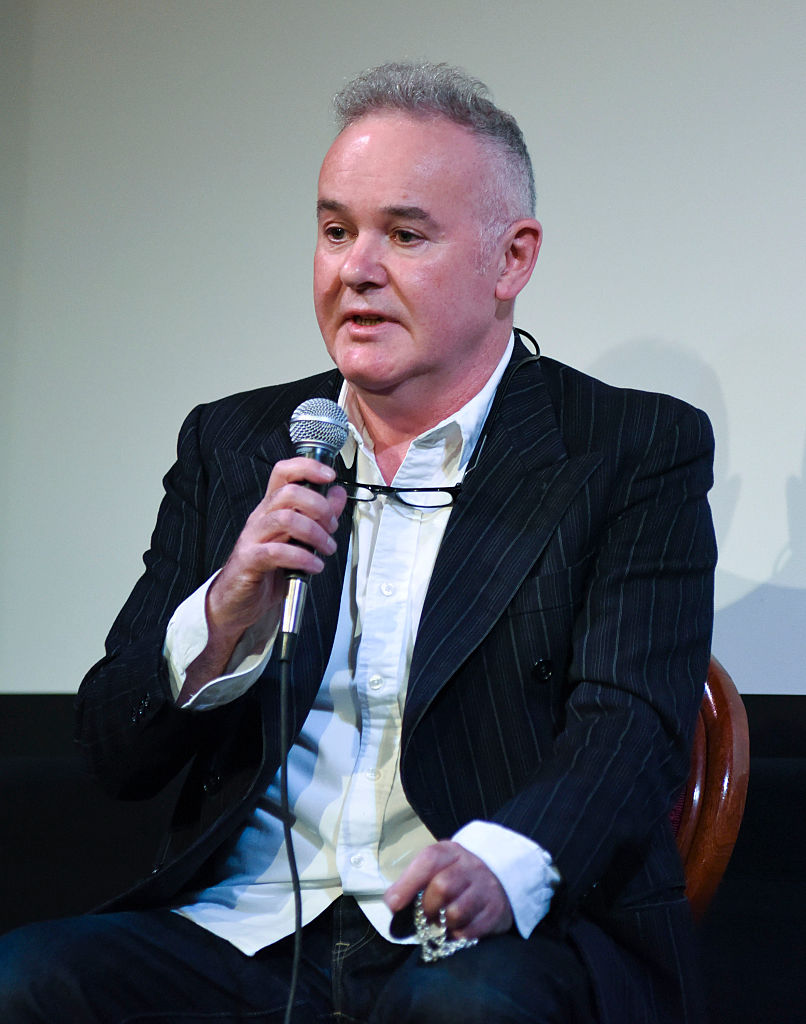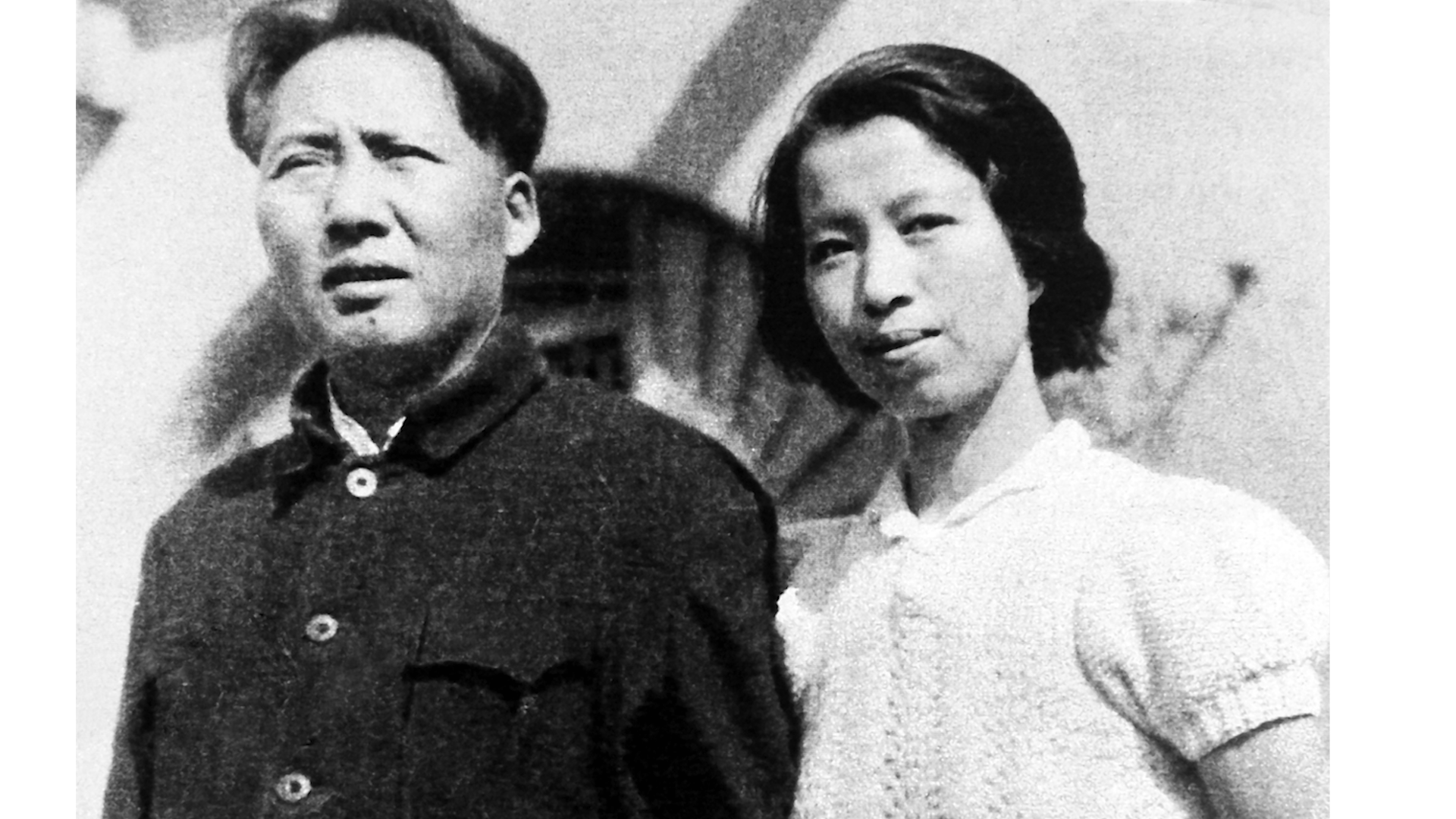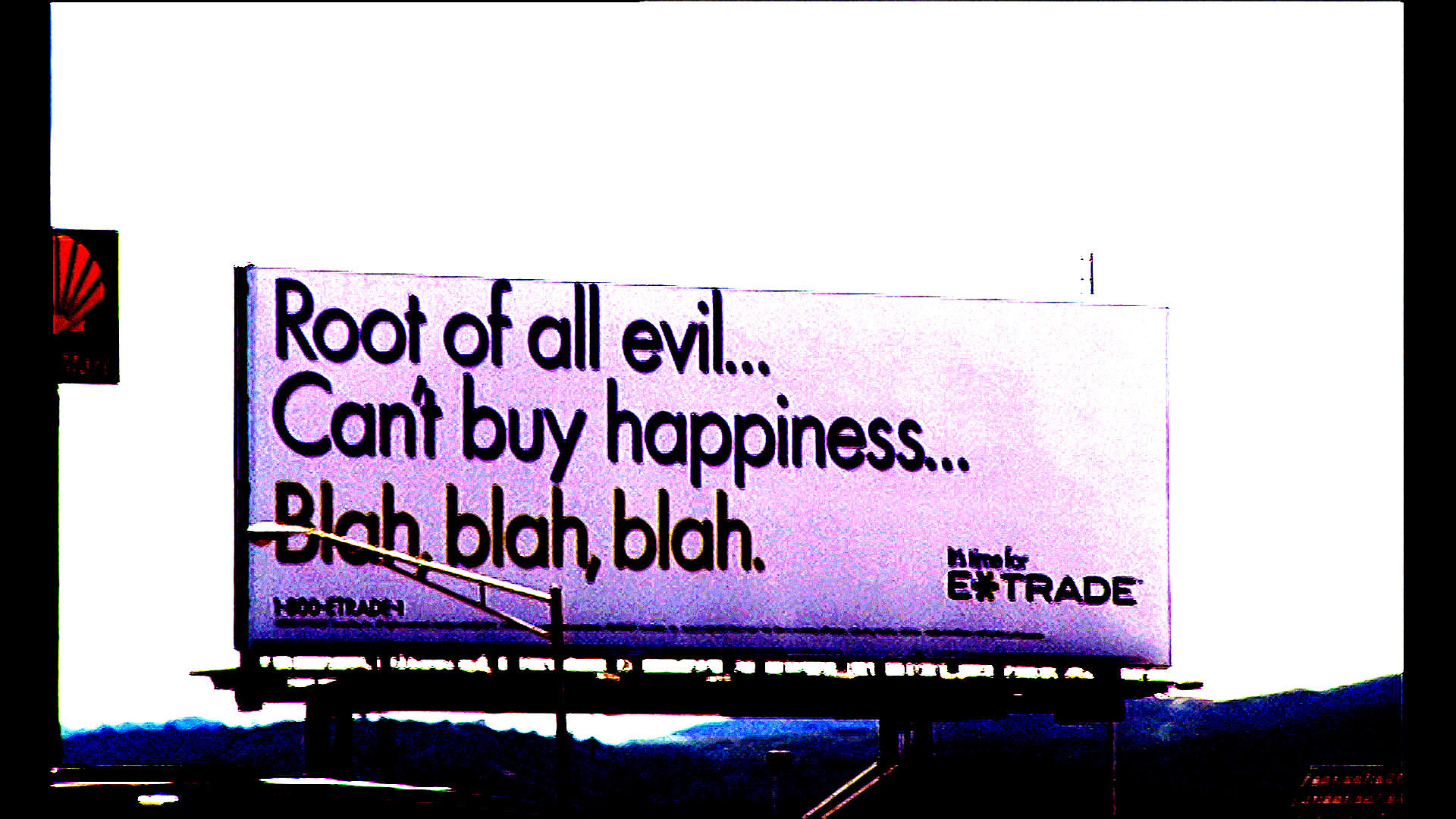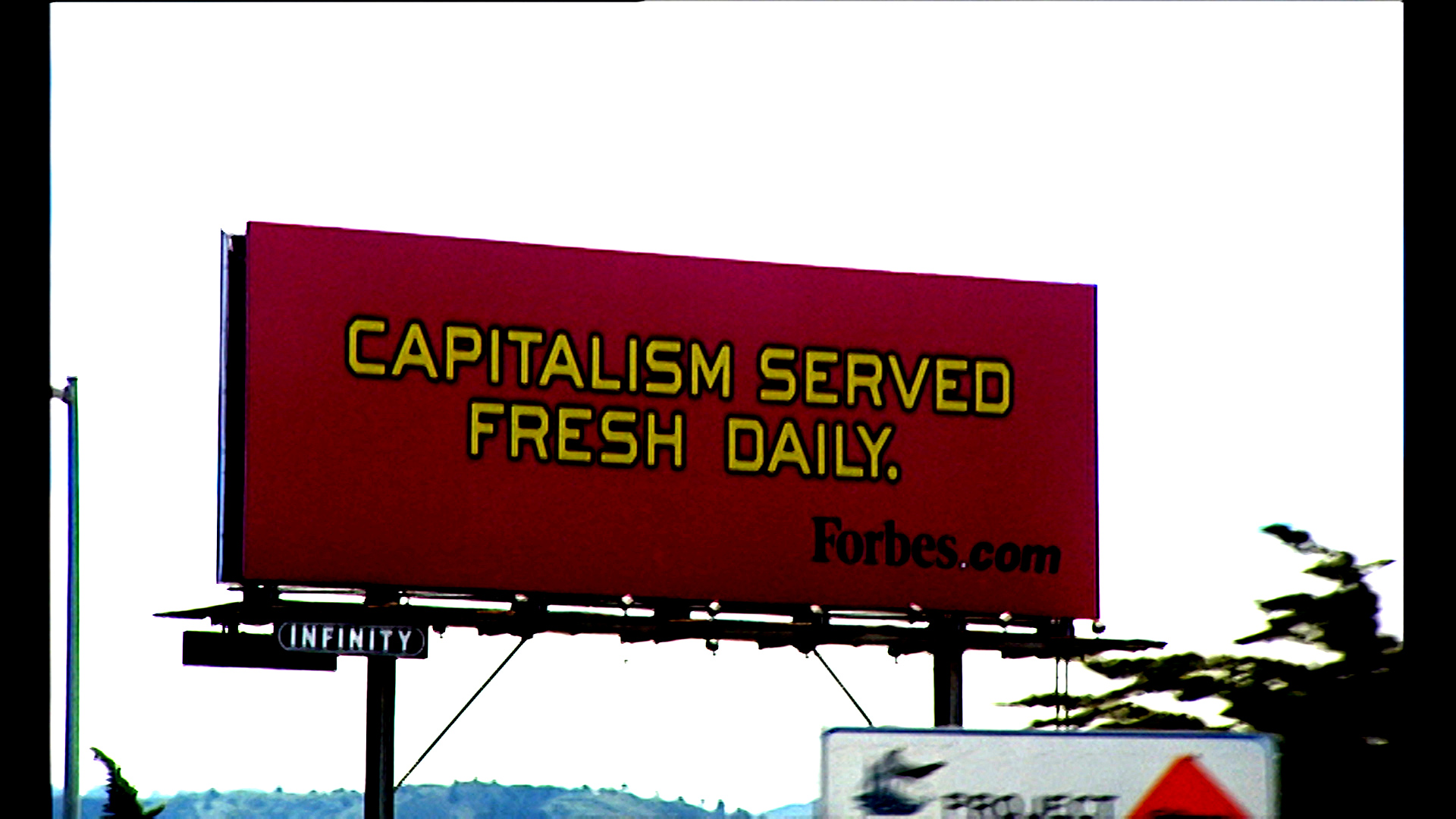The British filmmaker Adam Curtis may work for the BBC, a bastion of the British elite, but over a decades-long career, he has cemented himself as a cult favorite.
He is best known as the pioneer of a radical and unique style of filmmaking, combining reels of unseen archive footage, evocative music, and winding narratives to tell sweeping stories of 20th and 21st century history that challenge the conventional wisdom. “I’ve never thought of myself as a documentary maker,” he says. “I’m a journalist.”
On Feb. 11, Curtis dropped his latest epic: Can’t Get You Out of My Head, an eight hour history of individualism, split up over six episodes. Subtitled “An emotional history of the modern world,” the goal of the series, Curtis says, was to unpack how we came to live in a society designed around the individual, but where people increasingly feel anxious and uncertain.
It’s a big question, and Curtis attempts to answer it by taking us on a winding journey through the spread of conspiracy theories in America, the rise of international finance at the expense of state power, the death of organized labor, the evolution of Chinese state capitalism, and the corruption of the utopian dream that the Internet might set humanity free. If a series that traverses such wide territory sounds like it might be jarring, Curtis marshals lucid argumentation, good tunes and a sense of real urgency to achieve the opposite: a hypnotic viewing experience that you’ll struggle to, well, get out of your head. It’s available on the BBC’s iPlayer app in the U.K. but viewers in the U.S. can visit a YouTube page dedicated to Curtis’ work.

TIME caught up with Curtis over Zoom. What follows is a transcript of the conversation, which has been edited for length and clarity.
TIME: Can’t Get You Out of My Head is one of your best works, I thought. Are you happy with it?
Curtis: I mean, I’m never happy. My problem is I edit the films myself. So I get very close to them. All I knew is I wanted to do something somewhat different this time: make something more emotionally involving, more like a novel. This was more about the interplay between ideas and what happens when they get inside people’s heads, and how they change and morph into something else. I was nervous about that. But I think it’s worked.
A lot of the characters, not all of them, but a lot of them, are people that your average person may not have heard of. You have Mao Zedong. But you also have Kerry Thornley, a countercultural author who intentionally propagated conspiracy theories in the 1960s to show their absurdity, but ended up believing some of them.
Well again, that’s like a novel. One of the problems with a lot of historical journalism is it tends to go for the characters you already know, and because you already know them, even if you’re being told something different, you don’t really notice it. It’s a bit like when you’re shown a picture of the Mona Lisa, you go, yeah, that’s the Mona Lisa, and you don’t look at it at all. So I tend to choose characters who are fresh and interesting, and also complicated, ambiguous. A lot of them are not very nice. But on the other hand, at certain points in their lives, you can sympathize with them.

When I heard about the fact that you were making “an emotional history of the modern world,” I have to admit, my first reaction was: oh no, is he gonna do a reactionary take on identity politics? But no — having watched it, that isn’t the case.
I have no problem with identity politics. The left retreated from economics in the 1980s, because the right got into power everywhere. And in response to that, the left did some extraordinary things with identity politics, which actually did liberate lots and lots of people. I think it’s an amazing achievement. I think my criticism, which I think is clear in the films, is that they lost control of economics, and it ran out of control, and money took control.
Your documentaries are known for their evocative archive footage and music. And, I hope you don’t mind me saying, the meandering arguments. Is that a conscious stylistic choice to appeal to people’s emotions, as much as their sense of reason?
Well I don’t think it’s documentary. I’ve never thought of myself as a documentary maker. I’m a journalist. And really, all I know is that we live in an age in which people’s emotions have been given primacy. Feelings have been given prominence in the society in a way that in previous societies they haven’t. Therefore, the journalism has to reflect that.
I grew up realizing that people didn’t validate each other through politics any longer. They did it through the music, they liked the films they liked. And it was a way of communicating emotionally: I’m like this.
All I did was realize that you could take that into political journalism. And I would argue that a lot of political journalism never did that. It actually became colonized by the think tanks, who are the opposite. They’re completely utilitarian. They’re unemotional. And a lot of political journalism strangled itself. Because it missed that trick of just connecting emotionally with people.
This is your first film in almost five years. Is there any specific event or any trend since 2016 that stuck in your mind when you decided to make a history of individualism?
The thing that really got in my head was not so much Trump or Brexit, but that the people who hated Trump and hated Brexit weren’t really dealing with the elephant in the room, which was that all those people voted because they were angry.
I just thought to myself, if I ran an opposition party immediately after Trump, I’d be going out there saying: in a way, you’re right. But you voted for the wrong person. He’s going to con you, which Trump did. Because actually the truth of the last four years is that Trump completely failed. He didn’t do any of what he said he was going to do domestically. He said he was going to get rid of the corruption in Washington. It spread. He said he was going to rebuild the infrastructure of America. He did nothing and it is still falling apart. He said he was going to bring the factories back home. He didn’t. And the opioid crisis increased. He said he was going to end the futile wars abroad. He didn’t. By any measure, he was a total failure. And in a way, he’s another of these examples of these people coming up with this great wave of anger behind them. Because there are a lot of people who are very angry. And you can still see from the voting patterns in the most recent presidential election, in 2020, that they’re still there. Yet, nothing actually changed. What I was astonished by was that there was this sound and fury. But actually, no one was doing anything.
The only person who did, interestingly enough, right after Trump was first elected was Bernie Sanders. He went off and talked to those people. I do think he might have won in 2016. I really do, if he’d been the candidate, because that anger was so raw. So, because nothing was happening, it prompted me to examine how we got to this frozen state, where everyone is hysterical, but actually nothing was happening.
How much of this can be ascribed to the fact we’re now living in an attention economy? People’s attention is now scarce, but there is an abundance of information seeking to appeal to that attention. I wonder, to what extent do you think that has changed the flow of ideas?
I’m a bit suspicious about this. I know that social media corporations like what they call high arousal emotions, because it keeps people online longer. But if you go back to the collapse of journalism, it happened way before the Internet came along as a big presence. The readership for newspapers began to collapse in the early ‘90s. Which is the point at which journalism became very boring, because it had nothing else to say. It didn’t have any dramatic narratives. The left and right were blending together. But the interesting thing, someone from Hollywood told me this: in the 1990s, as the so-called attention economy was rising up, the average length of Hollywood movies went up by a third. Look at the length of the superhero films, they’re often three hours long. People don’t get bored with that.
In the fourth of the films, I quote this political scientist called Peter Mair, who I think is really interesting. He argued that in the early 90s, politics gave up being mass democracy. The idea of mass democracy was that you would tell people a story about where we’re going, and they would then unite behind you and give you the collective power to challenge the unelected groups of power in society. By the early 90s, people like you and me were arch individualists. We didn’t want to join political parties. We didn’t want to be in trade unions. We wanted to be autonomous units of one. And in the face of that, mass democracy lost its crucial thing, which is its collective power to challenge those unelected powers.
At which point, Mair says, politicians switched, they just literally went 180 degrees, and became the representatives of the unelected powers, who then manage you to make society work. And, he says, who can blame them? It’s our fault as much as it is the politicians’.

Individualism is born out of mass democracy. It’s a natural consequence of it. But at some point, individualism began to eat away at mass democracy, it began to strangle the very thing that had produced it, because it gets rid of collective power. What politicians are desperately trying to find at the moment — and you see it in Trump and you see it in Occupy — is a way of allowing people to still feel like individuals, yet at the same time, be a collective. No one’s really got there. What we’re waiting for is a politician who comes along with a really powerful story. And unless the left is careful, it’s going to be a not very nice nationalism.
Yet there are movements now that are drawing power from the collective — I’m thinking in particular of the Black Lives Matter movement that was galvanized in the wake of George Floyd’s death. Is what we’re seeing here somehow different to what we’ve seen before, in that at the core of the movement, there is an acknowledgement of structural economic inequalities, too?
Black Lives Matter is great because it’s the first movement that comes along and says, this is structural, this is about power. Because in the age of individualism, the word power has disappeared. You’re supposed to be empowered, yourself. What is reemerging is that old idea that actually, it’s about changing the structure. That’s what Black Lives Matter is saying, and it won’t go away. And it’s very interesting that it took a group which has been excluded from that system to come smashing through to the mainstream, and bring that debate into the mainstream. I think it’s great. I think, in boring terms, it’s the return of sociology. It says that actually, the reason you feel shit doesn’t just come from inside you, it isn’t your failure, which is what a lot of modern positive psychology says. What Black Lives Matter says, and the wider movement which they’re part of says, is no: a lot of the reason you feel shit is because you live in a shit society, or where you are in the power structure is horrible and unequal, and it’s not your fault.
Over the last 70 years, social justice movements have won more rights for racial minorities, women, and LGBTQ people, yet wealth inequality has actually increased hugely. I suppose the last facet of identity that cannot be co-opted by capitalism is class. Have we reached a point now where the intersection between class and other forms of identity is too great to ignore?
I think that’s true. I think the COVID pandemic has shown, brutally, that the further you are away from the system of power, the more likely you are to fall ill and die. Whereas the higher you are up the hierarchy of power, the safer you are. I think, just as much as the austerity after the banking crisis went very deep, I think this is going to go very deep. And they’re both class. The reason you got Brexit and the reason you got Trump was because of the response to the banking crisis in 2008. And in both America and Britain, people realized that those lower down the chain were being asked to pay for the rich’s corruption and criminality. That went very deep. The people who have to drive a bus in order to make society work are more likely to die than those who run a hedge fund. I think that’s going to go very deep, I really do. So there are good things to this pandemic. It’s shone a very powerful searchlight on exactly what we’re talking about: social class and power.
But one of the structural problems is the unaccountable power that many corporations have — especially the social media companies. Their algorithms tend to give primacy to destructive emotions like fear and hatred, which impact our wider politics. So what happens when you have a movement that depends on the products of large corporations to spread its message, but also wants to dismantle or at least substantially change those corporations?
I see the paradox, but I would argue that actually what might happen is that we can take power back from those people who have skewed the Internet into that very narrow form of just targeting you with adverts, and make it genuine — a collective thing that also allows you to express yourself as an individual. It’s what I was saying to you earlier on: the new politics is going to be the one that squares that circle.
So yes, social media is a really good, powerful force. It’s also a draining force, because they build up these giant cash piles, and don’t actually make anything. That doesn’t mean there are not good things sitting in there, that if you could actually take power, you could take them back. I think there’s a big movement starting, especially in Europe, to take power back from those companies, because actually, they could be opened up and used for genuinely good social purposes. At which point, you might get a new kind of politics. So I see the paradox, but I think it’s rather hopeful, actually.
You brought up Cambridge Analytica in the series briefly, but mainly to illustrate the point that in fact, this company that supposedly manipulated people into voting for Trump didn’t have as much sway as it said it had. They were basically using a model that is used across the advertising industry as well as the political influence industry. And yet Facebook and Google’s multibillion dollar value is predicated on the fact that these data-based advertising models work.
I know. Why do you think I feel that the panic about the Internet may die away quite soon? A lot of people in advertising are beginning to question whether Google’s magic ability to target people and predict how they as individuals behave may not be true. There’s a great story which I threw out of the film, because it’s just too complicated. An economist working for eBay a couple of years ago was very suspicious about this. He persuaded the marketing department of eBay to give up advertising on Google for a third of the North American continent for three months. And the marketing company went, this will be a disaster. But nothing happened. They tried it for another three months. The sales remained exactly the same. And the economist said: what Google might really be up to is the pizza leaflet thing. If you and I are both advertising pizzas, and you go out on the streets and hand out leaflets, but I go to the lobby of a pizza pickup joint, it looks like I’ve got a 100% success rate, but they’re already coming there to buy the pizzas. I couldn’t put it in the films. But this terrible thing is that really, you’re just targeting somebody with something they’re already going to buy.

And what they’ve done in the process is destroy journalism. Just eaten it away. Not that it wasn’t dying before, because it was so boring. I think journalism will reinvent itself. It always does. It did, funnily enough, at a time very similar to this, when you had these things called the robber barons, at the end of the 19th century in America. They were really a bit like tech companies today, they were skewing everything. So the railroads could destroy a town by saying we’re not going to put a station there. Out of that came a new kind of journalism, which explained what’s happening to people. I think the same thing will happen now. I suspect that what we’re waiting for is a new kind of narrative to come along, and somehow grab you and make sense of this.
Someone who takes the new understanding of how power works in a society, and turns it into something dramatic. I just think people will start writing about power. But it’s got to be done in an imaginative way. At the moment, it’s a bit “Elon Musk stroking a cat in a cave.” Which, in a way, the social media corporations play up to. Because it makes them feel stronger and more powerful, when maybe they’re not.
Correction: Feb. 25
The original version of this story misstated the name of a political scientist referred to by Curtis. His name was Peter Mair, not Peter Mayer.
More Must-Reads from TIME
- Caitlin Clark Is TIME's 2024 Athlete of the Year
- Where Trump 2.0 Will Differ From 1.0
- Is Intermittent Fasting Good or Bad for You?
- The 100 Must-Read Books of 2024
- Column: If Optimism Feels Ridiculous Now, Try Hope
- The Future of Climate Action Is Trade Policy
- FX’s Say Nothing Is the Must-Watch Political Thriller of 2024
- Merle Bombardieri Is Helping People Make the Baby Decision
Write to Billy Perrigo at billy.perrigo@time.com